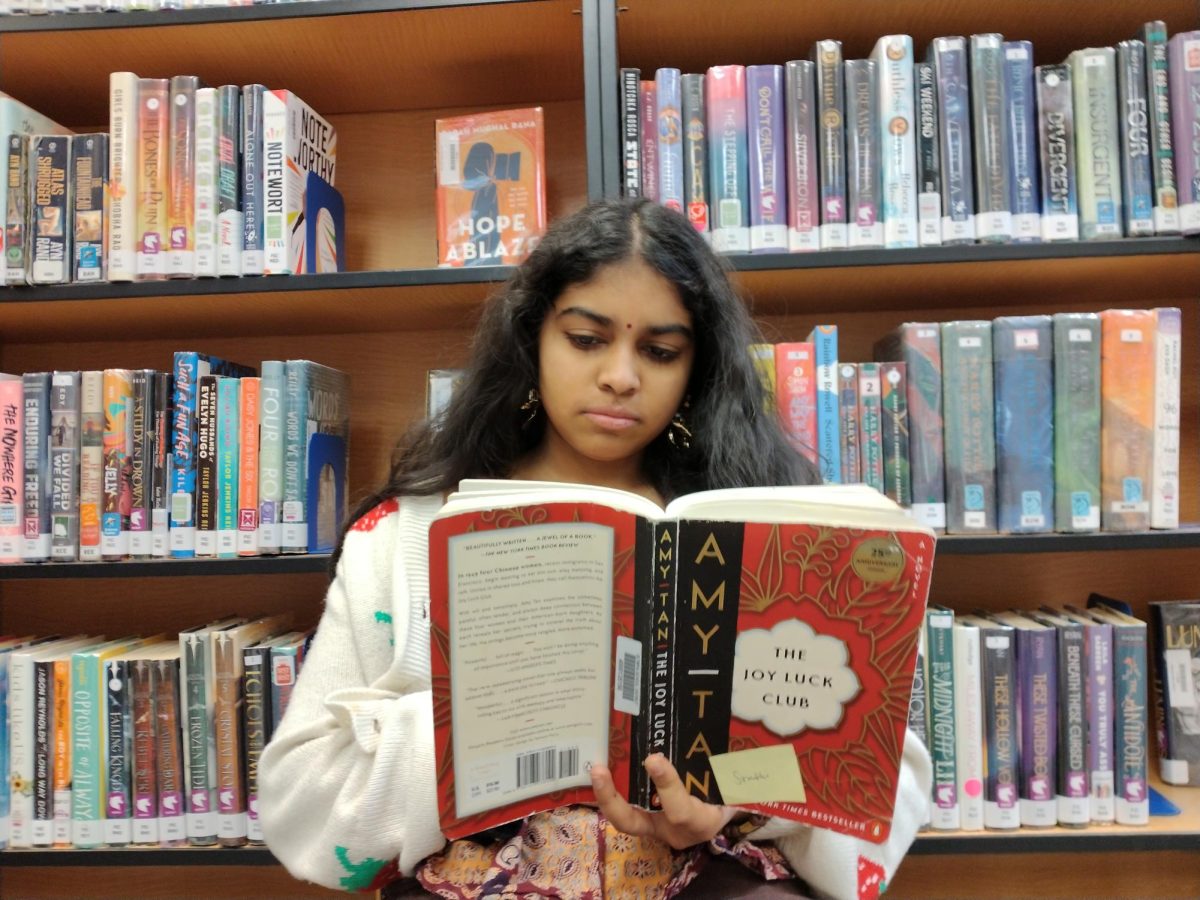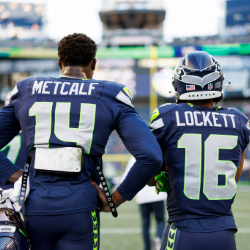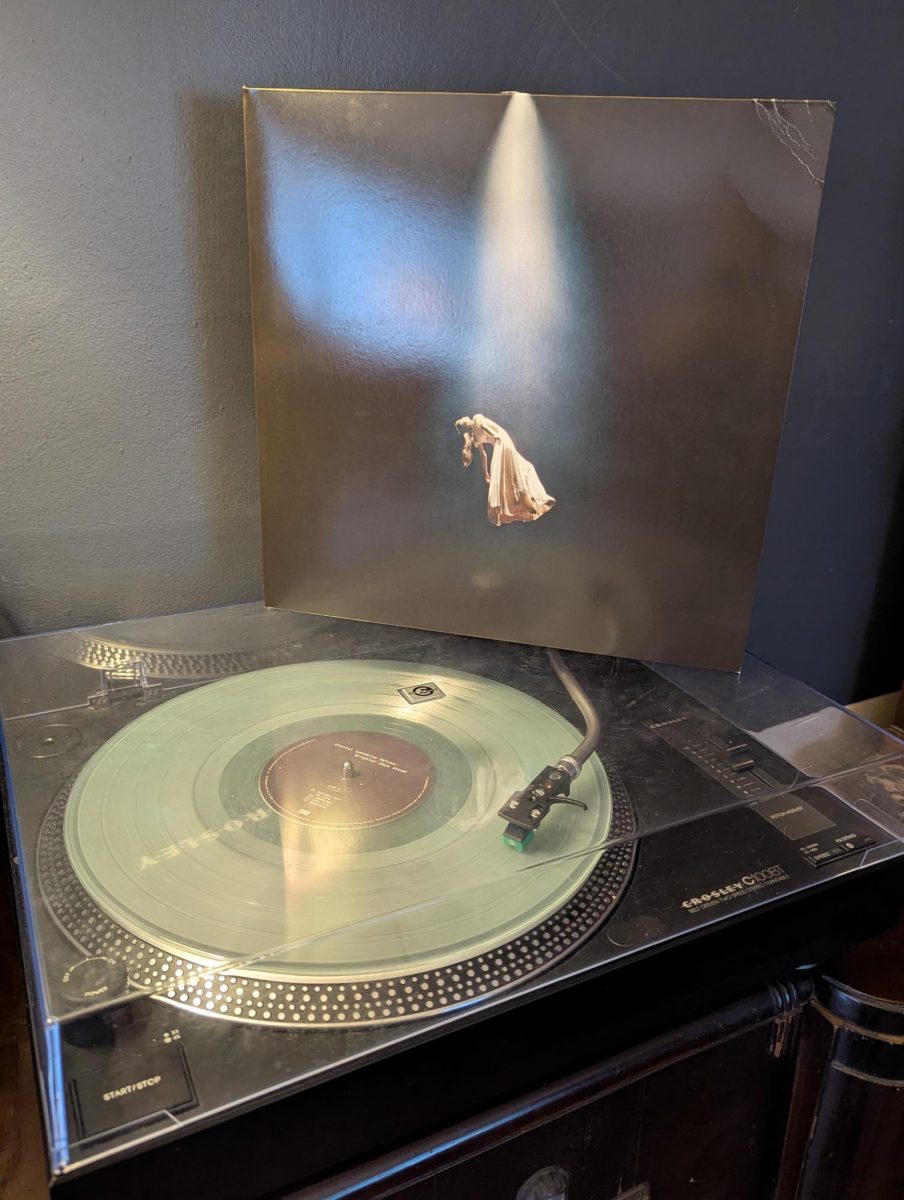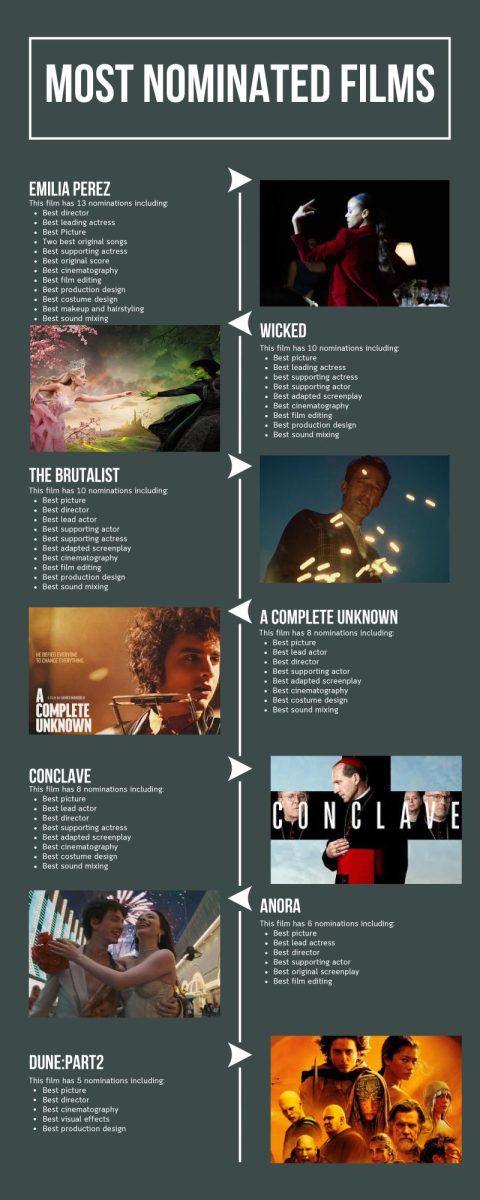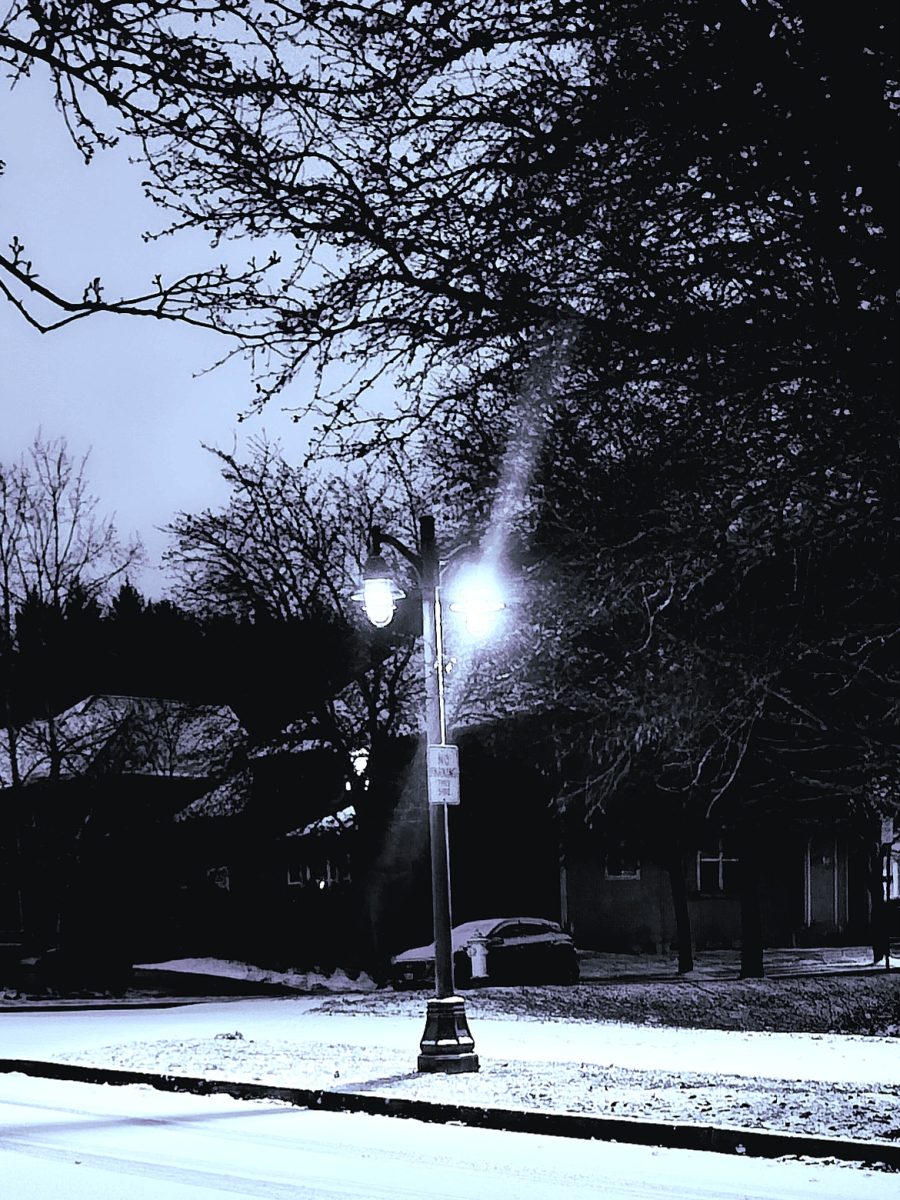A fourteen-year-old girl meets a twenty-four-year-old man. They marry six years later. What would be considered predatory (and criminal) now wasn’t just brushed over in the 1960s—it was glamorized by almost all of America.
Sofia Coppola’s Priscilla (2023) tells Elvis and Priscilla Presley’s story from Priscilla’s point of view, inspecting their relationship’s ups and downs. The film is an adaptation of Priscilla’s memoir “Elvis and Me” (1985).
Priscilla (2023) undermines Priscilla’s blissful life of fame and transforms it into a portrait of isolation. Coppola effectively blends a biopic with a coming-of-age movie, humanizing a once-objectified Priscilla Presley.
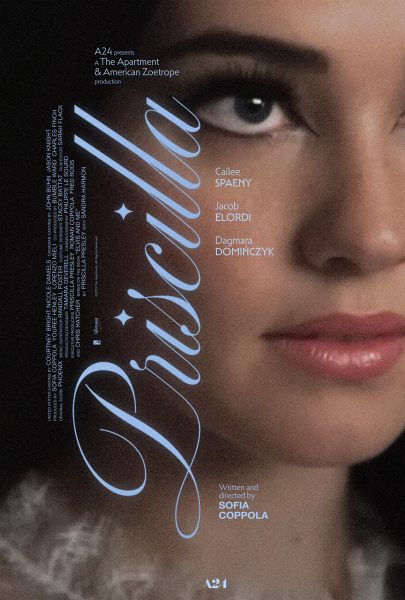
Priscilla’s life is depicted as a perfect fantasy at the beginning of the movie. She enjoys her lifestyle of luxury, despite it slowly draining her. However, after enduring Elvis’ controlling behavior and physical abuse, Priscilla begins to realize she’s not living the life she wants.
Elvis rarely visits the home Priscilla is imprisoned in. She has no room to be herself, and Coppola draws on this feeling of loneliness with a montage of wasted years. These scenes not only illustrate Priscilla’s isolation but also make the viewer feel worthless and unacknowledged.
Throughout the movie, Coppola cleverly manipulates the shot scale between Jacob Elordi (Elvis) and Cailee Spaeny (Priscilla) to emphasize Elvis’ influence and power. Elordi’s domineering stature dwarfs Spaeny, a dichotomy in size alone.
Coppola marks the midpoint of the movie with Priscilla’s high-school graduation, yet another elusive reminder of Priscilla’s youth. The Vegas and the roller rink scenes give viewers a euphoric rush juxtaposed with a side of emptiness and despair.
The second half of the film is anticlimactic at best and disappointing at worst. Coppola attempts to build towards a nonexistent climax and ends suddenly. Perhaps her intention is to leave the viewer as lost as Priscilla.
The Presley troubles are embodied through Elordi and Spaeny’s performances, but Spaeny shines the brightest. She captures every emotion—glee, heartbreak, anguish, remorse—through her mere facial expressions. Spaeny encapsulates her character through different ages and painful encounters with grace.
Overall, Coppola’s Priscilla boasts stunning visuals and a fitting soundtrack. Elordi and Spaeny collaborate to paint a dark, twisted fairytale most are not familiar with. The film’s sincerity and vulnerability are why it succeeds.
Surprisingly, the Elvis Estate’s choice not to let the film use his music work in favor of it. Without his music, Elvis loses some of his allure—he’s just another abusive man.
With every biopic comes controversy, and Priscilla is no stranger to that. While Priscilla herself is satisfied with Coppola’s depiction of her, Elvis’ daughter, Lisa Marie Presley, is not.
Before her death, Marie Presley called the script “shockingly vengeful and contemptuous.” Two emails from Variety stated that Presley asked Coppola to “reconsider [her] vision for the character and to spare [her] family public embarrassment.”
“I am worried that my mother isn’t seeing the nuance here or realizing the way in which Elvis will be perceived when this movie comes out … I am worried [Coppola] doesn’t understand the intentions behind this film or the outcome it will have,” Marie Presley elaborated.
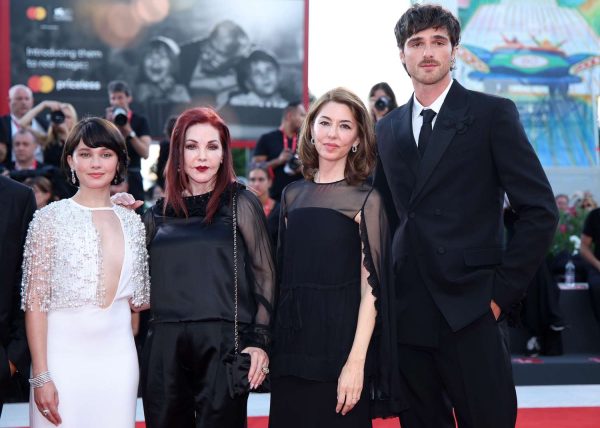
Priscilla Presley shared similar concerns initially, but later stated, “I think it’s right on, to be honest with you.” She proceeded to praise Coppola’s filmmaking. “I think she does a great job. She is for women, and when she approached me about doing a movie about me, I was moved by it … I would never support another movie from anyone else doing it,” the 78-year-old expressed.
During a roundtable discussion, Coppola explained that it was important Priscilla Presley “[felt] that her story was represented in a way that was true to her.” True to her word, Priscilla Presley is credited as an executive producer on the project.
Priscilla is now playing in national theaters. The film awaits those ready for an accurate representation of Elvis—not the fairy tale everyone grew up with.













